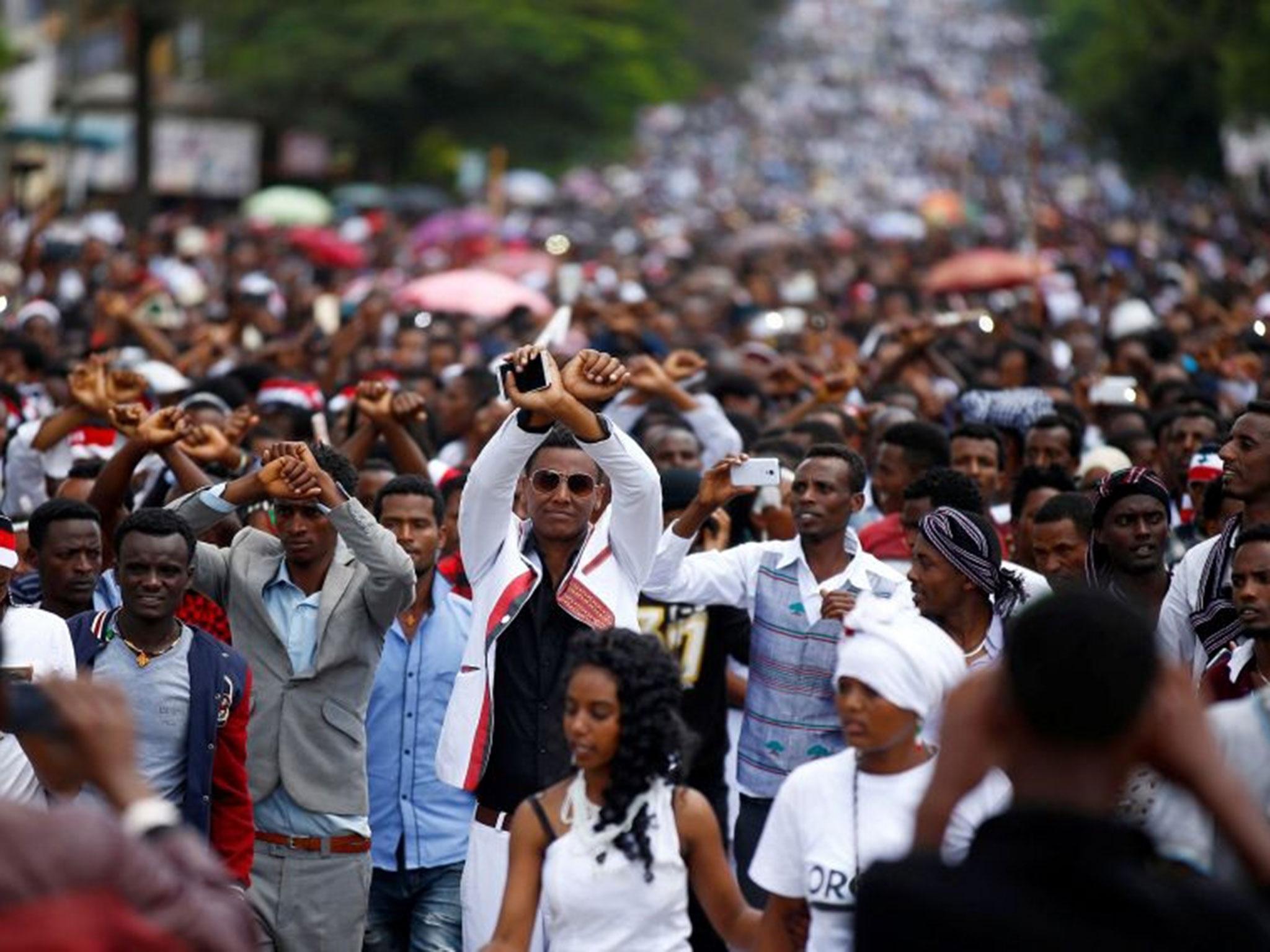Ethiopia frees all political prisoners and closes notorious Maekelawi jail in surprise decision
Ethiopians were quick to respond, even with social media sites currently blocked

Your support helps us to tell the story
From reproductive rights to climate change to Big Tech, The Independent is on the ground when the story is developing. Whether it's investigating the financials of Elon Musk's pro-Trump PAC or producing our latest documentary, 'The A Word', which shines a light on the American women fighting for reproductive rights, we know how important it is to parse out the facts from the messaging.
At such a critical moment in US history, we need reporters on the ground. Your donation allows us to keep sending journalists to speak to both sides of the story.
The Independent is trusted by Americans across the entire political spectrum. And unlike many other quality news outlets, we choose not to lock Americans out of our reporting and analysis with paywalls. We believe quality journalism should be available to everyone, paid for by those who can afford it.
Your support makes all the difference.In a surprise move, Ethiopia's leader on Wednesday announced plans to drop charges against political prisoners and close a notorious prison camp in what he called an effort to "widen the democratic space for all."
Prime Minster Hailemariam Desalegn's comments came after anti-government protests engulfed much of the restive Oromia and Amhara regions in recent months, bringing many businesses, universities and transport networks to a standstill. The protests spread into other parts of the East African country, leading to a months-long state of emergency that has since been lifted.
"Political prisoners that are facing prosecutions and are already under arrest will be released," Hailemariam said. "And the notorious prison cell that was traditionally called Maekelawi will be closed down and turned into a museum."
It was not immediately clear how many political prisoners were being held across the country, a close US security ally.
Ethiopians were quick to respond, even with social media sites currently blocked.
"I'm writing you this struggling with my tears," wrote renowned blogger and former detainee Befeqadu Hailu. "All these pledges need to be implemented immediately."
Rights groups and opposition groups in Ethiopia had been calling for the release of political prisoners, saying they were arrested on trumped-up charges and were being punished for their points of view. Ethiopia's government has long been accused of arresting critical journalists and opposition leaders.
Some of the prominent politicians currently in custody include opposition leaders Bekele Gerba and Merara Gudina. A number of journalists also remain in detention.
The months of protests demanding wider freedoms led to hundreds of reported deaths and tens of thousands of arrests while disrupting one of Africa's fastest growing economies.
"The crackdown on the political opposition saw mass arbitrary arrests, torture and other ill-treatment, unfair trials and violations of the rights to freedom of expression and association," rights group Amnesty International has said.
AP
Join our commenting forum
Join thought-provoking conversations, follow other Independent readers and see their replies
Comments